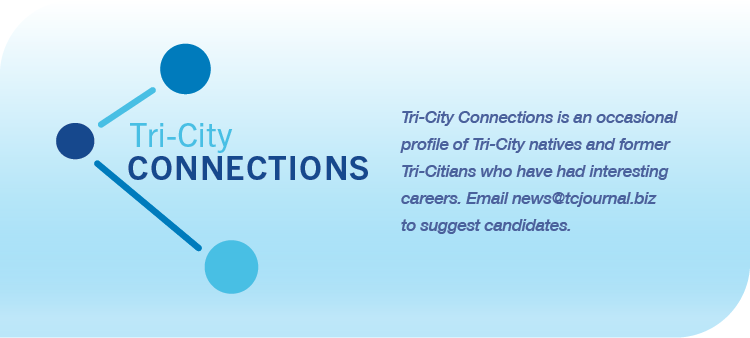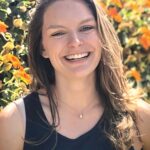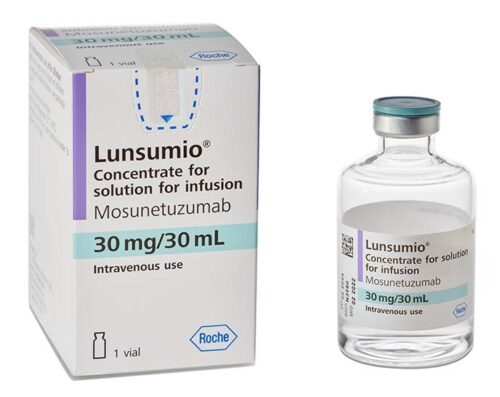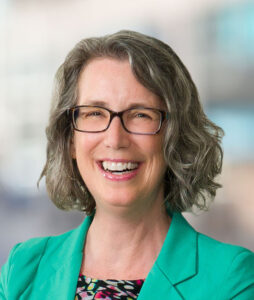
Home » Richland native has hand in development of new cancer drug
Richland native has hand in development of new cancer drug

February 13, 2023

Jackie Tyler knew in high school that she wanted to help cure diseases.
But she also knew she didn’t want to be a doctor.
To reach her goal meant taking lots of science classes at Richland’s Hanford High and then studying biomedical engineering in college. In summer, she’d return home to the Tri-Cities for internships at Pacific Northwest National Laboratory.
This serious science student landed a job with a biotechnology corporation more than nine years ago. She’s spent the last seven of them working on a team that had a hand in developing a new cancer-fighting drug. It was recently approved by the FDA.
Tyler, 32, a technical development principal scientist at Genentech, said the process of getting the medicine over the finish line and to more patients has been surreal.
“It’s really great knowing now it’s available for any patient who needs it outside of clinical trials, which is incredible,” she said.
The medicine
The Food and Drug Administration approval for Lunsumio came in December. The medicine, administered intravenously, helps adults with the most common slow-growing form of non-Hodgkin’s lymphoma, a blood cancer.
Results from clinical trials showed that 80% of patients who received at least two prior therapies responded well to the treatment, with 60% experiencing complete remission.
“This additional treatment option is good news for people whose blood cancer has not responded to multiple lines of treatment because it can become more difficult to treat each time it returns,” said Dr. Lee Greenberger, chief scientific officer of the Leukemia & Lymphoma Society, in a news release. “This bispecific antibody is an off-the-shelf, accessible treatment option that has the potential to help those with relapsed or refractory follicular lymphoma achieve remission.”
Tyler is quick to share credit with her team.

“There are so many people involved in the process of bringing a medicine to market and so many hands touch it over the years as it goes through this. I’ve been really lucky that the people I work with are really awesome,” she said.
Her role as a formulation scientist was to develop the safest recipe necessary to deliver the drug to patients.
A successful formulation ensures the medicine is manufacturable and has a long, stable shelf life “so that when patients receive their treatment, the drug has good quality,” she said.
“The work that I have done gets to have a broader impact over lots of people – hopefully,” she said.
Tri-City ties
Tyler grew up in Richland, the daughter of an environmental scientist father Dan Tyler (the retired founder of Freestone Environmental Services Inc. in Richland) and a public health nurse mother, Jerry Tyler.
Jackie took advanced biology and chemistry classes at Hanford High, graduating in 2008.
“I feel really lucky that we have excellent public schools in the Tri-Cities,” she said.
She knew when she started applying for college that she knew she didn’t want to be a doctor or nurse.
“I didn’t want the personal pressure or emotional toll of having a patient-facing career,” she said.
She chose to attend Purdue University in Indiana because it offered good scholarships for women studying engineering and her grandparents lived nearby.
She earned her bachelor of science in biomedical engineering in 2012 and master’s in the same subject the following year.
At Purdue, her undergraduate work included research testing different nanomedicines for treating cancers and spinal cord injuries. The work involved animals, rats specifically, and she learned that she “really didn’t want to work with animals ever again.”
“It was a valuable experience being able to spend time in the lab and trying out different instruments and techniques and learning what that workflow is like and seeing the scientific process firsthand,” she said.
She discovered she enjoyed the making medicine part of the work. “I like things to be more applied, rather than the research side. I decided to go into industry, rather than pursue a Ph.D.,” she said.
Joining Genentech
Genentech offered her a job before she graduated with her master’s.
“I defended my thesis and two weeks later started work. It was a whirlwind,” she said.
She packed up her university life and moved to San Francisco to join the California-headquartered company.
Genentech, a member of the Roche Group, has been developing medicines to treat patients with serious medical conditions for more than 40 years.
She started at Genentech as an entry level associate engineer and spent her first few years there working on Kadcyla, a breast cancer drug.
Today, Jackie works in the pharma technical development group.
Her team’s focus is to figure out what inactive ingredients the medicine should be mixed with so it can be manufactured at large scale, so it is stable by the time it gets to the patient and so it can safely be administered in the way doctors want.
“We really strive to understand the stability of the molecule and how it changes over time and how to slow or stop those changes so that the medicine is really good by the time the patients get it,” Jackie said. This involved experiments in storing the medicine for two to three years and types of stability testing.
Jackie’s work as a technical development principal scientist has evolved over time, with the scope growing with the needs of the project. Today, it involves more strategic, long-range planning and computer-based data analysis. “And a lot of technical writing,” she said.
Some days she misses slipping on her lab coat and spending the majority of her time in the lab. “There’s something to be said being physically in the lab and doing things. It’s almost meditative because you have a set goal and you know exactly what you’re supposed to be doing, and when you’re done with the day, you feel very accomplished in a lot of ways,” she said.
Even though Lunsumio is FDA approved, Jackie’s team will continue to support the medicine as it’s being launched into the world, adjusting for any changes in the manufacturing process.
“It’s almost like I raised a child that’s graduating from high school or college. It's really rewarding to kind of watch that process,” she said.
What does a brilliant cancer fighting scientist do in her free time?
In September, she married a solution architect from Washougal. They enjoy biking, hiking, listening to music and other outdoor activities in their warm California climate. She said she gets home to the Tri-Cities about twice a year.
“I grew up near Leslie Groves Park and I miss going for walks along the river. When I go home in the summer, I always make sure we go on a river float as a family. We put in near Hanford High by the WSU campus and float down to our house,” she said.
When she talks to other scientists about where she’s from, she always mentions that the Tri-Cities is in the heart of Washington wine country, home to alphabet houses and the Hanford nuclear site and has more Ph.D.s per capita than anywhere else. She talks about the strong science education she received at Hanford High.
“I feel really lucky that we have excellent public schools in the Tri-Cities,” she said, explaining it encouraged her to get involved in a Genentech outreach program that brings science to middle and high schoolers. “We’re helping to grow the next generation of scientists,” she said.
Local News Health Care
KEYWORDS february 2023





